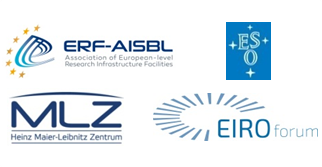Description
Chair: Laura Holland (Diamond Light Source, UK)
Sophie Tesauri
(CERN)
30/05/2017, 16:00
Interactive format
Big research infrastructures such as CERN are increasingly in the media and therefore well known to the public. In case a crisis strikes, it is vital for the reputation of the laboratory to be able to react in a timely and appropriate manner. Handling a crisis is not only done on the operational side but also on the communication side. Communications with all internal and external stakeholders...
Dr
Christina Beck
(Max-Planck Society)
30/05/2017, 16:20
Andrea Voit
30/05/2017, 16:25
Interactive format
Research on the human brain involves tests on primates, which prompts activists against animal testing. Neutron research needs nuclear reactors, running on highly enriched uranium and producing radioactivity, which alarms critics and causes fears in the neighbourhood. Can facts from the authorities and good research results really stand up against fears, emotions and alternative truths? We...
Ms
Sandra Dawson
(Thirty Meter Telescope International Observatory)
30/05/2017, 16:10
Interactive format
Social movements are a type of group action. They are large, sometimes informal, groupings of individuals or organizations which focus on specific political or social issues. The question is, in a post-truth world of alternative facts and fake news, could science (ya know, the systematic study of our world...) actually be positioned as a social movement? This talk imagines science as a...
Dr
Ulrich Marsch
(Technical University of Munich)
30/05/2017, 16:15
Dr
Michael Raess
(INFRAFRONTIER GmbH)
30/05/2017, 16:05
Interactive format
INFRAFRONTIER is the European research infrastructure for the generation, phenotyping, archiving and distribution of model mammalian genomes. It advances our understanding of human health and disease by providing mouse disease models and related data to biomedical researchers worldwide.
The topic of animal experimentation meets a lot of scepticism in the general public: while many...

